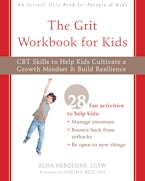Working with kids is always interesting, and often challenging. That’s part of the fun. One of the common struggles in child therapy is helping kids to understand that they can get through tough situations. Kids are quick to quit and give up when they feel distress, but we can teach skills to help them keep going.
One of my favorite strategies is to use their own narrative as evidence of their strength. I start digging through past events that were difficult or uncomfortable, but that they got through. It doesn’t matter how small or mundane this event was; what matters is that we use their experience in a narrative that shows they can persevere.
We then use this experience to build coping cards—written statements that the child can use to boost their confidence when struggling.
Coping cards for kids who are quick to give up might look something like:
- Feelings are temporary. This feeling will end. Remember when I was scared to go to soccer practice, but I did it anyway? I stopped feeling scared after two minutes. This feeling will end.
- I went to camp, by myself, with no friends, and I was so scared. But I did it anyway. I can do hard things.
- How will I feel if I give up now? How will I feel if I keep going? I wanted to quit the play, but I stuck with it, and I am so glad I did. I can stick with this, too.
I like to ask kids if we can enlist their parents or caregivers as coaches, to help them remember the statements. Over time, the coping cards become second nature, and a powerful tool that enables kids to build their grit.
Elisa Nebolsine, LCSW, is owner and clinician at CBT for Kids, a private practice in Falls Church, VA. She is also adjunct faculty at the Beck Institute for Cognitive Behavior Therapy, adjunct faculty at Catholic University, and diplomate of the Academy of Cognitive Therapy. She has presented locally and nationally on the topic of cognitive behavioral therapy (CBT) and children, and is a consultant for schools, agencies, and other organizations on the implementation and use of CBT with children.



